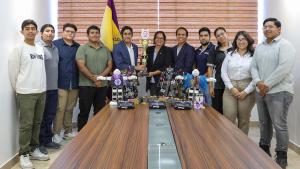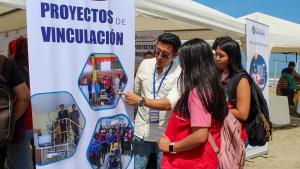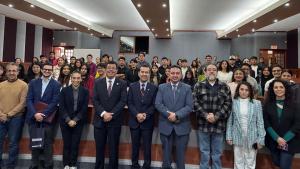Noticia
2nd anniversary of the UNESCO chairs program
The UNESCO chair: Technologies for inclusive education, celebrated its second anniversary in favor of children, teenagers and adults in vulnerable situations. The program has effectively applied innovative assistive tools based ICTs.
Cesar Vasquez, vice president of the university's branch campus in Cuenca, highlighted the work carried out by the members of the UNESCO program with several inclusive projects.
Fernando Pesantez, academic vice president and director of the UNESCO program, said the project supports inclusion especially for people who have been historically excluded. "We, as adults, are responsible for our children misunderstanding the concept of education. We conceptualize education as a means to reach a simple professional or social status, when it is about being happy".
The director of the Artificial Intelligence and assistive technologies Research Group (GIIATA for its acronym in Spanish), Vladimir Robles, thanked professors and students who have supported the program and presented the inclusive projects they have carried out along with the Inclusive education research group in Quito's branch campus and the information and communication technologies research group in Guayaquil.
Paola Ingavelez, member of the UNESCO chairs program and GIIATA, presented the topic: "The role of women in Science and Engineering" and highlighted the work done by women in engineering and their support in different projects.
Contenidos Relacionados
Contenidos Relacionados
Noticias Relacionadas
Noticias Relacionadas





Follow us
Follow us